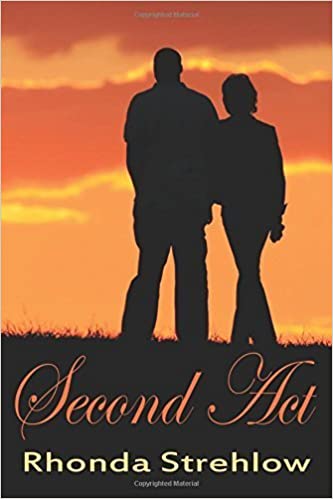By Rhonda Strehlow
Inspiration

Someone once asked me where I get ideas for my books. Some have been in my head for years. Take the premise for my first book, Second Act. All 70,000 plus words are based on a sixty-minute encounter that took place more than twenty years ago.
It started like this: my sisters and I took a long weekend break in Chicago. We had just seen a play and had an hour or so before we were expected at a nice restaurant. The evening was gorgeous. We talked and laughed as we wandered down the street. I was carrying a tiny evening bag. Feeling free and silly, I was swinging the purse in circles when a blond gentleman grabbed my arm.
This is downtown Chicago. We’re from a town with a population of 499 in northern Wisconsin. My sisters and I freeze.
He says, “It’s not safe to swing your purse in this city.”
En masse my sisters and I back away from him and his large bald friend we hadn’t noticed earlier.
He smiles and starts telling us about Chicago, its history, and famous residents. Within minutes we were captivated by his insights and barely noticed when we reached the restaurant. We invited them to join us. They pointed to their shorts and sandals and declined.
“Thank you…” I hesitated. “We don’t know your names.”
The blond man smiled enigmatically, hugged me, and walked away.
I gave the bald man a quizzical look.
He leaned in and whispered, “If I told you his name, you would recognize it.”
In minutes they disappeared into the crowd.
If you want to know what could have been the rest of the story, you’ll have to read the book.

